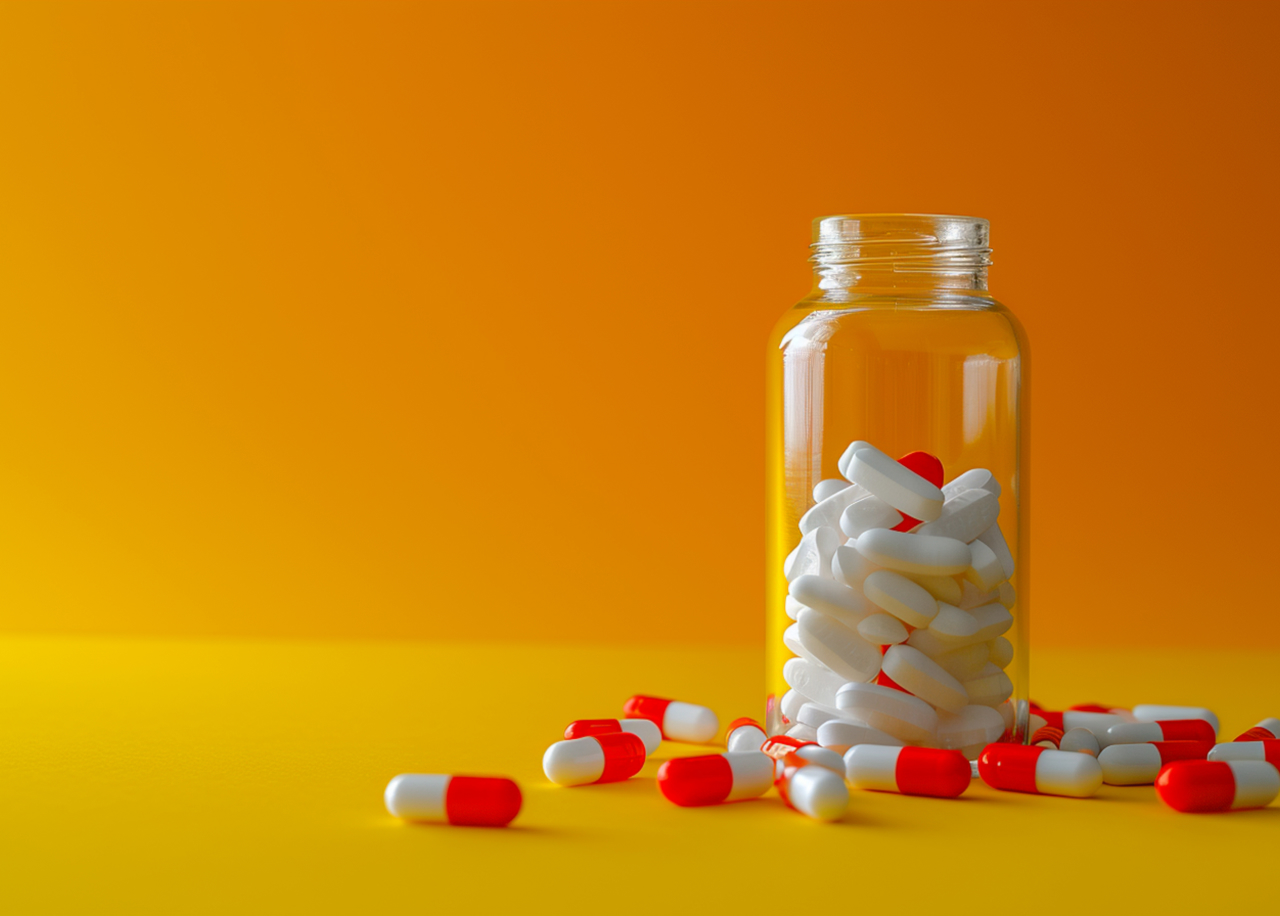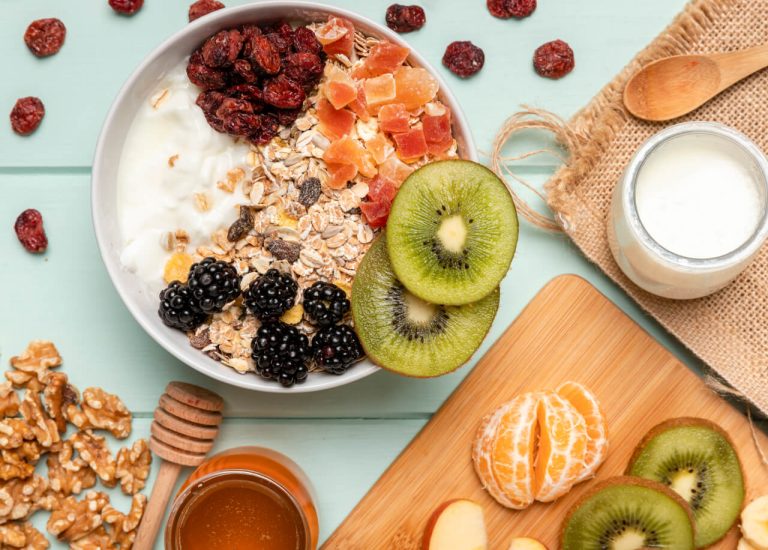Foods to Avoid When Taking Medications: A Comprehensive Guide

Introduction
When you’re prescribed medication, following the instructions given by your healthcare provider is essential to ensure the treatment is effective. However, many people don’t realize that the foods they eat can interact with medications in ways that reduce effectiveness or even cause harmful side effects. In this guide, we’ll explore the common food-drug interactions, specific foods to avoid, and tips for managing your diet while on medication.
1. Understanding Food-Drug Interactions
Food-drug interactions occur when a food or beverage affects the absorption, metabolism, or excretion of a drug, potentially altering its effectiveness or causing unwanted side effects. These interactions can happen with both prescription and over-the-counter medications and vary depending on the type of food and the drug being taken.
- Absorption: Some foods can prevent your body from absorbing a drug properly, either by binding to the drug or altering the stomach’s acidity.
- Metabolism: Certain foods can speed up or slow down how quickly a drug is metabolized, affecting its concentration in your bloodstream.
- Excretion: Foods can also affect how quickly a drug is excreted, impacting its duration of action.
Understanding these interactions is crucial for anyone taking medication, as they can sometimes have serious consequences.
2. Common Food-Drug Interactions
Certain foods are known for their potential to interact with medications. Here are some of the most common culprits:
a) Grapefruit and Grapefruit Juice
Grapefruit is notorious for its ability to interact with a wide range of medications, including those used to treat high blood pressure, cholesterol, and anxiety.
- How it interacts: Grapefruit inhibits the enzyme CYP3A4, which is responsible for breaking down many drugs in the liver. This inhibition can lead to higher levels of the drug in your bloodstream, increasing the risk of side effects.
- Medications affected: Statins (e.g., atorvastatin), blood pressure medications (e.g., nifedipine), and certain anti-anxiety drugs (e.g., buspirone).
b) Dairy Products
Dairy products like milk, cheese, and yogurt can interact with antibiotics and certain osteoporosis medications.
- How it interacts: Calcium in dairy products can bind to certain drugs in the stomach, forming an insoluble compound that the body can’t absorb.
- Medications affected: Tetracycline and quinolone antibiotics (e.g., ciprofloxacin, doxycycline) and bisphosphonates (e.g., alendronate).
c) Leafy Green Vegetables
While leafy greens like spinach and kale are generally healthy, they can interfere with blood-thinning medications.
- How it interacts: These vegetables are high in vitamin K, which plays a crucial role in blood clotting. Eating large amounts can counteract the effects of blood-thinning medications.
- Medications affected: Warfarin (Coumadin) and other anticoagulants.
d) Alcohol
Alcohol can interact with a wide range of medications, from pain relievers to antidepressants.
- How it interacts: Alcohol can increase or decrease the effects of certain medications, potentially leading to dangerous side effects.
- Medications affected: Pain relievers (e.g., acetaminophen, ibuprofen), antidepressants (e.g., SSRIs, MAOIs), and medications for high blood pressure.
3. Specific Foods to Avoid Based on Medication Type
Let’s delve deeper into specific foods to avoid based on the type of medication you’re taking.
a) Blood Pressure Medications
Blood pressure medications, particularly ACE inhibitors and ARBs, can interact with foods high in potassium.
- Foods to avoid: Bananas, oranges, tomatoes, and other high-potassium foods.
- Why: These medications can increase potassium levels in the blood, leading to hyperkalemia, which can cause heart palpitations and other serious complications.
b) Cholesterol-Lowering Medications (Statins)
Statins are commonly prescribed to lower cholesterol, but their effectiveness can be impacted by certain foods.
- Foods to avoid: Grapefruit and grapefruit juice.
- Why: As mentioned earlier, grapefruit can increase the concentration of statins in your blood, leading to muscle pain, liver damage, and other side effects.
c) Blood Thinners
Blood thinners like warfarin are used to prevent blood clots, but their effectiveness can be reduced by vitamin K-rich foods.
- Foods to avoid: Kale, spinach, broccoli, Brussels sprouts.
- Why: Vitamin K promotes blood clotting, which can counteract the effects of blood thinners, making it harder to prevent clots.
d) Antibiotics
Antibiotics are designed to kill bacteria, but their absorption can be hindered by certain foods.
- Foods to avoid: Dairy products, calcium-fortified foods.
- Why: Calcium can bind to antibiotics in the stomach, preventing them from being absorbed into the bloodstream, which reduces their effectiveness.
e) Antidepressants
Antidepressants, particularly monoamine oxidase inhibitors (MAOIs), have strict dietary restrictions due to potentially dangerous interactions.
- Foods to avoid: Aged cheeses, cured meats, fermented foods, and alcohol.
- Why: These foods contain tyramine, which can cause a hypertensive crisis (a sudden and dangerous increase in blood pressure) when combined with MAOIs.
f) Diabetes Medications
Diabetes medications help control blood sugar levels, but certain foods can cause dangerous spikes or drops in blood sugar.
- Foods to avoid: Sugary foods, alcohol, high-carb meals without balanced proteins or fats.
- Why: These can cause rapid changes in blood sugar, which can interfere with the effectiveness of diabetes medications.
4. Managing Your Diet While on Medication
To avoid food-drug interactions, it’s important to manage your diet carefully. Here are some tips:
a) Read Medication Labels
Always read the labels and accompanying information for any medication you’re prescribed. This will often include warnings about specific foods to avoid.
b) Consult Your Healthcare Provider
Talk to your doctor or pharmacist about any dietary restrictions you should follow. They can provide personalized advice based on the medications you’re taking.
c) Keep a Food Diary
Keeping a food diary can help you track what you’re eating and identify any potential interactions. This is particularly useful if you’re on multiple medications.
d) Space Out Meals and Medications
In some cases, you can avoid interactions by timing your meals and medications properly. For example, if you need to take a medication that interacts with calcium, you might take it a few hours before or after consuming dairy.
5. Common Myths About Food-Drug Interactions
There are many myths and misconceptions about food-drug interactions. Let’s clear up some of the most common ones:
Myth 1: All Foods Are Safe to Eat While Taking Medications
Reality: As we’ve discussed, many foods can interact with medications. It’s important to be aware of these interactions to avoid potentially dangerous side effects.
Myth 2: Natural Foods Are Always Safe
Reality: Even natural or organic foods can interact with medications. For example, grapefruit is natural but can interact with many drugs.
Myth 3: You Only Need to Worry About Prescription Medications
Reality: Over-the-counter medications can also interact with foods. Always read the labels and ask your healthcare provider about any potential interactions.
Conclusion
Food-drug interactions can be complex, but understanding them is essential for anyone taking medication. By being aware of the foods to avoid and taking steps to manage your diet, you can help ensure your medication works as intended and reduce the risk of side effects. Always consult with your healthcare provider for personalized advice, and remember that a balanced diet and proper medication management go hand in hand for maintaining your health.
Sources:
- Food-Drug Interactions | Johns Hopkins Medicine
- Bushra R, Aslam N, Khan AY. Food-drug interactions. Oman Med J. 2011 Mar;26(2):77-83. doi: 10.5001/omj.2011.21. PMID: 22043389; PMCID: PMC3191675.
- Drug Interaction Checker ← Quickly Check Your Meds (drugs.com)
- Common Food-Drug Interactions (bvhealthsystem.org)
“At Dynamic Wellness Solutions, we believe in empowering you with the knowledge and tools to make informed choices that resonate with your unique well-being journey. Our commitment to transparency ensures that you navigate the intricate world of nutrition with clarity, embracing the transformative power of honest and truthful information. Join us on this dynamic path to wellness, where your health and vitality are at the heart of every decision we make together.”


